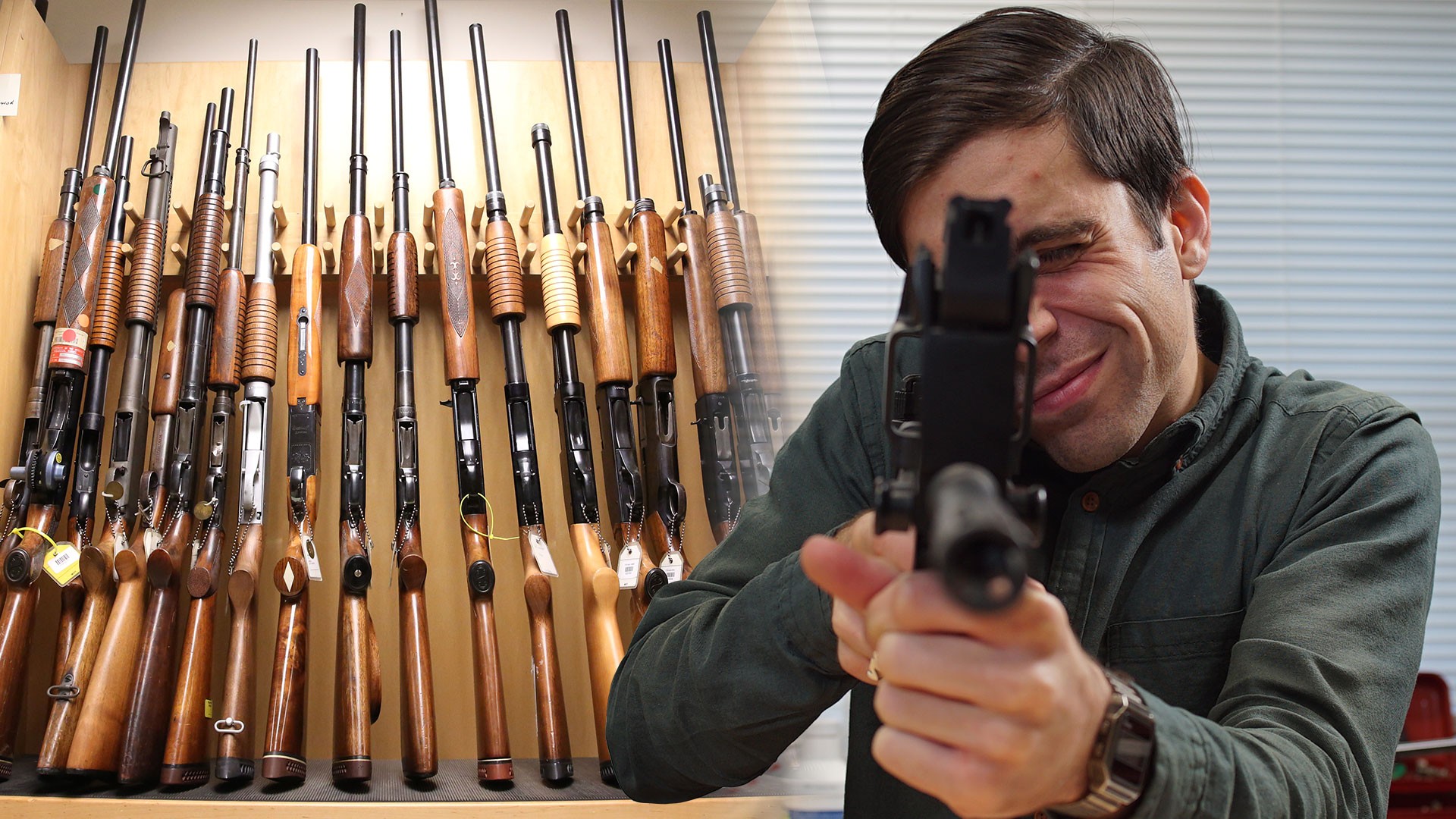Oskara Naumkin dropped her 12-year-old son Nicholas off for a playdate one day in December 2010. He never came home. He was accidentally shot and killed with a Ruger 9mm semi-automatic handgun by his friend, who found the loaded gun unsecured in a sock drawer.Shootings like the one that killed Nicholas have prompted a small and emerging movement to make guns “smarter” — in other words, to include technology on the gun that allows only predetermined people to fire it. In Motherboard’s “A Smarter Gun,” Brian Anderson explores the new technologies, including witnessing a test fire of the world’s first bio-hacked smart gun. But despite the recent success, the potentially life-saving technologies face fierce opposition. What makes a gun “smart” are its safety features, which can range from fingerprint recognition to radio frequency identification to skin implants that identify a gun’s owner. These technologies can prevent accidental shootings, gun theft, use of the weapon against the owner, and self-harm. But opponents argue they can also make guns less effective and lead to new regulations.“There is no such thing as a smart gun,” said Michael Timlin, the owner and operator of RT Smoke’n Gun Shop in Mount Vernon, New York, who advocates for the reliability of traditional guns. “We can not put a device or anything on a firearm that would allow it to become smarter.”As mechanical weapons, guns have remained relatively unchanged by technological advances since their invention. The National Firearm Reference Vault, the largest collection of guns in the United States, houses thousands of guns — but not a single smart gun.Still, some gunmakers are finding ways to make their guns smarter. Ernst Mauch, the creator of the HK416 assault rifle — which was reportedly used to kill Osama bin Laden — created a gun that must be fired within 10 inches of a watch that requires a PIN number.At the Massachusetts Institute of Technology, one student has been building a prototype for a gun that recognizes its owner’s fingerprint since he was 15. Another company’s gun responds to a magnetic tag inside of a ring. And one of the most viable solutions might be body implants that can unlock guns by recognizing the chip implanted in the user’s hand.“We will get there. But at a tremendous, tremendous cost,” Nicholas’ mother, Oskara Naumkin, said.
What makes a gun “smart” are its safety features, which can range from fingerprint recognition to radio frequency identification to skin implants that identify a gun’s owner. These technologies can prevent accidental shootings, gun theft, use of the weapon against the owner, and self-harm. But opponents argue they can also make guns less effective and lead to new regulations.“There is no such thing as a smart gun,” said Michael Timlin, the owner and operator of RT Smoke’n Gun Shop in Mount Vernon, New York, who advocates for the reliability of traditional guns. “We can not put a device or anything on a firearm that would allow it to become smarter.”As mechanical weapons, guns have remained relatively unchanged by technological advances since their invention. The National Firearm Reference Vault, the largest collection of guns in the United States, houses thousands of guns — but not a single smart gun.Still, some gunmakers are finding ways to make their guns smarter. Ernst Mauch, the creator of the HK416 assault rifle — which was reportedly used to kill Osama bin Laden — created a gun that must be fired within 10 inches of a watch that requires a PIN number.At the Massachusetts Institute of Technology, one student has been building a prototype for a gun that recognizes its owner’s fingerprint since he was 15. Another company’s gun responds to a magnetic tag inside of a ring. And one of the most viable solutions might be body implants that can unlock guns by recognizing the chip implanted in the user’s hand.“We will get there. But at a tremendous, tremendous cost,” Nicholas’ mother, Oskara Naumkin, said.
Advertisement
